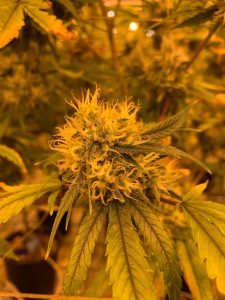As the black market for pot sales shows little sign of slowing, Californian authorities have notably increased enforcement action against illegal cannabis traders. Over the last 12 months, raids by law enforcement on black market pot businesses have increased threefold, when compared with similar activity conducted in the year prior. As a result, unlicensed pot growers and sellers have seen a total of $30 million worth of cannabis products seized. But even amid this additional ramp up, cannabis industry insiders say even more activity is needed to curb illegal pot sales across the Golden State.
For context, in 2018 local law enforcement worked in conjunction with the state Bureau of Cannabis Control, and together they served six unlicensed cannabis businesses with search warrants. These raids resulted in the seizure of more than 1,500 pounds of marijuana, said to carry a street value of $13.5 million.

Comparatively, according to data release in July, within the first half of 2019 alone, the bureau had already served 19 search warrants to unlicensed sellers. Those raids were successful, and saw more than $16.5 million worth, or about 2,500 pounds of illicit marijuana, confiscated. Just shy of $220,000 cash was also seized from cannabis businesses operating illegally during this time.
Continue reading
 Following a slew of vaping related lung disease cases, a Los Angeles City Council member calls for a year-long ban on all vaping sales.
Following a slew of vaping related lung disease cases, a Los Angeles City Council member calls for a year-long ban on all vaping sales. Cannabis Law Group's Medical Marijuana Legal Blog
Cannabis Law Group's Medical Marijuana Legal Blog






 With the 2020 ballot fast approaching, California activists are keenly working towards securing a measure that would decriminalize psilocybin, also commonly known as ‘magic mushrooms.’
With the 2020 ballot fast approaching, California activists are keenly working towards securing a measure that would decriminalize psilocybin, also commonly known as ‘magic mushrooms.’
 Counterfeits keen to take a piece of the Californian marijuana market share are increasingly targeting cannabis product brands. And the cannabis vaping boom that has swept the marijuana landscape was soon followed by a spate of knock offs. Particularly concerning to big brand vape pen manufacturers including Kingpen, Heavy Hitters and Connected Cannabis Co., is that it’s very hard to discern between real and counterfeit products.
Counterfeits keen to take a piece of the Californian marijuana market share are increasingly targeting cannabis product brands. And the cannabis vaping boom that has swept the marijuana landscape was soon followed by a spate of knock offs. Particularly concerning to big brand vape pen manufacturers including Kingpen, Heavy Hitters and Connected Cannabis Co., is that it’s very hard to discern between real and counterfeit products. California’s unlicensed farmers in Humboldt County are on notice, with a new crackdown on cannabis growing now in effect. After issuing 1,500 provisional cannabis licenses, state and local authorities are increasingly pursuing farmers for operating without permits.
California’s unlicensed farmers in Humboldt County are on notice, with a new crackdown on cannabis growing now in effect. After issuing 1,500 provisional cannabis licenses, state and local authorities are increasingly pursuing farmers for operating without permits.

